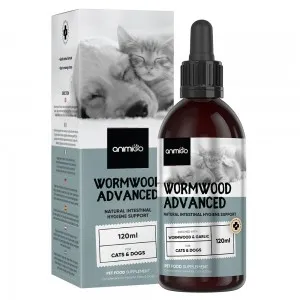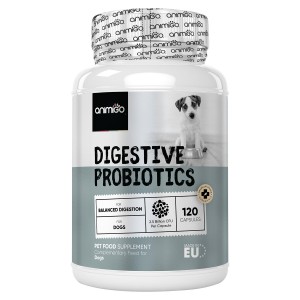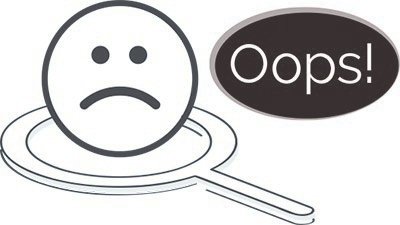100% Customer Satisfaction
Full 90-day money back guarantee
Free UK Delivery
Enjoy free shipping on orders above £30
Natural & Delicious Pet Supplements
Get nutritious, pet-safe & cruelty-free solutions
Filters
Dogs
Contrary to what you might think, a dog upset stomach is not the only reason why you might want to have concern for their digestive system. Dog digestion is an essential avenue over which your dog achieves health and wellbeing. Your dog’s digestive system breaks down the food that they eat and converts it into energy and other agents that are then put to work all over your four-legged friend’s body making a difference in their everyday life. Many other life-preserving systems rely on a functioning dog digestive system to ensure that they can function optimally too.
There are all sorts of steps that you as a dog owner can take to ensure that dog digestive problems are a rarity for your companion in particular. Namely by incorporating digestive care dog food and dog digestive supplements to their diet. But first, it is important to better understand what kind of dog digestive problems your furry friend can face.
The Dog Digestive System
Dog digestion is identical to human digestion in terms of the purpose, which is taking in food and then converting into substances that can be used all over the body. There is one striking difference though, and that is the length. The dog digestive system is a lot shorter than that of humans, because the length of the digestive tracts is purpose-designed to suit their diet. Dogs are meant to eat mostly meat, so they have a shorter digestive system. Humans, on the other hand, are meant to have a more balanced diet so ours are longer. You can also see this reflected in our teeth and how dogs have sharper teeth designed to grip and tear meat.
Speaking of teeth, it is also important to consider that the dog digestive system isn’t just the stomach and the intestines like many fail to grasp. Dog digestion begins at the mouth and then continues all the way to the rectum where waste is released. The digestive system essentially takes food on a lengthy nutritious journey. Along the way, it will be broken down by stomach acid, bile and various digestive enzymes where the resulting products are used throughout the body. However, one negative of the dog digestive system, and all digestive systems in general, is that being so long means that there are a lot of places where issues can occur.
Dog Digestive Problems
A dog's upset stomach is an unsurprising occurrence when you consider that they are prone to consume more or less anything put in front of their nose. This defining doggy characteristic can mean that toxicities can build up in their digestive system and the many organs that comprise it. Since dog digestion is a process that is carried out by so many different organs, the digestive problems that can occur are multiple in their nature. Your dog's digestive system is incredibly versatile, and left to its own devices can largely protect itself thanks to organs such as the liver and the kidneys. However, long-term abuse can lead to problems. Here are some of the common causes of issues in your dog's digestive system:
Food
Unsurprisingly, the biggest factor involved in making or breaking your dog’s digestion is what they eat. What you put in, certainly in terms of the dog digestive system, is what you get out. Dogs will eat almost anything and, while this means that they’re largely not picky, this creates a problem in that toxicities can build up in their digestive tract and cause dog digestive problems over time. This can be the result of consuming a diet that is high in heavily processed foods, or one that contains too much human food. As owners, we can sometimes think that feeding our furry friends what we eat is a caring thing to do, but by definition, and as their shorter digestive tracts prove, dogs are by no means people and this should be considered when feeding them.
Exercise
On the opposite side to the balance as food, is exercise. Exercise, or a lack thereof, can be a threat to your dog's digestive system as exercise is a great natural way to regulate your dog's metabolism. A lack of exercise could lead your dog to becoming bloated and constipated, or experience digestive problems. Making sure your dog is getting enough exercise is a great way to help ensure that the pace and flow of digestive function are being maintained.
Bacteria
One of the most significant causes of digestive problems in dogs is bacteria. Bacteria are essentially just foreign cells that multiply and release toxins which cause complications and damage to where they are. This can explain why your dog might occasionally experience an upset stomach. Bacteria are often carried on out of date or rotting food, which is why it is important to keep a sharp eye on what your dog is eating or what they plan to eat. The same goes for when you are out on a walk because bacteria can be carried on substances that your dog may take a curiosity to in the wider world beyond meal times.
Symptoms of Dog Digestive Problems
Though the problems that your dog might run into may be diverse in their place of origin and site of effect, there are some certain telltale signs that indicate it might be time to take action. Here is a list of symptoms to look out for that could suggest a dog upset stomach or other complications to your dog’s digestion:
- Vomiting
- Diarrhea
- Loss of appetite
- Constipation
- Excess gas
- Blood or mucus in stools
What Can I Do To Prevent Dog Digestive Problems?
Luckily there are preventative measures that you can take on board and work into your dog’s daily routine to protect them against digestive problems. Firstly, and most importantly, it is important that you keep an eye on what they are eating; don’t give them food that is too processed as this could aggravate digestive problems. Equally, don’t feed them food that was meant for humans as this kind of food simply isn't suitable for their digestion. Make sure that your dog gets plenty of protein in the form of meat, and also their digestive system can benefit enormously from a generous helping of fibre. Just like humans, fibre is key to digestion in dogs too. Also, be sure to prevent your dog from eating things that they have just picked up off the ground.
Secondly, you should ensure that your dog is being active. Aside from being great for the immune system and joint health, exercise is one of the key sources of stimulation in the dog digestive system. Ensuring that your dog is getting adequate exercise will help make sure that their digestive system will be ticking over in normal fashion and nothing is building up or being improperly used.
Dog digestion supplements
There is a wide range of naturally sourced supplements that target digestion that you can give to your dog to complement a balanced diet and exercise routine. The complexity of the dog digestive system means that support can be required in various different areas. Luckily, many natural food supplements for dogs and dog digestive supplements are tailored to suit all of these specific areas. For example, some can be designed to target mouth health, others the stomach, and others the intestines. You can even find some that are designed to help support the bacteria in your dog's gut! Overall, the window into making sure that the dog digestive system is well kept is the mouth. By regulating what your four-legged friend eats, and by complementing their diet with natural supplements, you can help make their mouth the window into a happy and healthy life.




